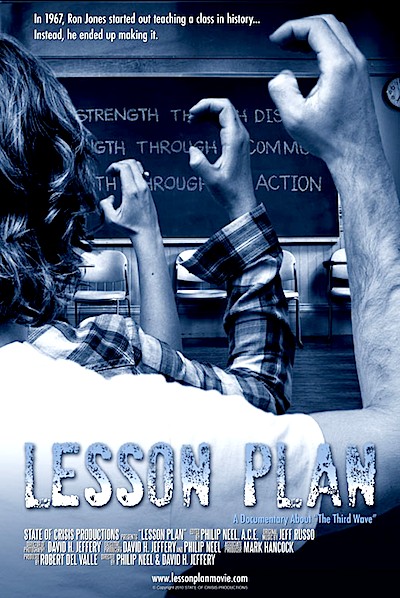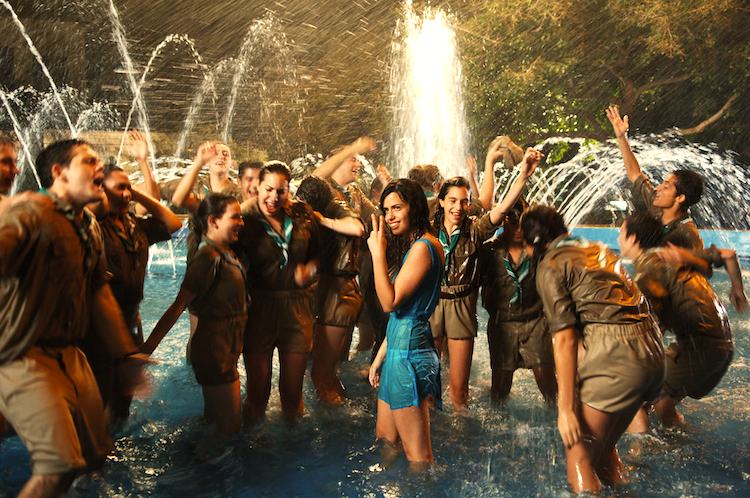 By Patricia Ducey. One day in 1967, a Palo Alto high school student asks his history teacher how the German people could have missed the signs of the ongoing genocide being perpetrated by the Nazis. This innocent question ignites an idea, and teacher Ron Jones launches a classroom “simulation,” or experiment, to illustrate how good Germans -how anyone – could fall prey to totalitarian thinking.
By Patricia Ducey. One day in 1967, a Palo Alto high school student asks his history teacher how the German people could have missed the signs of the ongoing genocide being perpetrated by the Nazis. This innocent question ignites an idea, and teacher Ron Jones launches a classroom “simulation,” or experiment, to illustrate how good Germans -how anyone – could fall prey to totalitarian thinking.
Forty years later, Philip Neel, one of the students who participated in that experiment dubbed The Third Wave, has produced a documentary, The Lesson Plan, featuring interviews with students who participated, and with teacher Ron Jones himself.
Jones reorganized his classroom that week into a simulation of a prototypical fascist youth group. He enforced physical discipline and uniformity in the students’ posture and speech per his first-day dictum, “Strength Through Discipline.” He meant it to end there, he now avers, but students were eager for more. He added more simplistic, effective sloganeering on the following days: strength through community, through action, through unity and finally through pride. Strength through Community meant, for instance, that students were to share grades. Top students helped the lower students. Jones was heartened by the increased level of participation of the weaker students, while he banished to the library for the remainder of the semester some more successful students – who of course resented lowering their grades so students who did not do the work could get higher grades. Similarly, anyone who spoke against The Third Wave faced a mock trial and banishment. At Jones’s urging, students secretly “informed” on other students who spoke against the Third Wave, and the car club guys appointed themselves as Jones’s bodyguards. Jones found out only at the reunion that a few of these guys beat up a student journalist who was writing a non-flattering article on The Third Wave. When an outsider student asked a Third Waver to explain what they stood for, he could not give an answer.
So in just a few days, the atmosphere of the school changed into something tense, charged with anticipation—but anticipation of what? Continue reading Experiment in Fascism at an American High School: The Lesson Plan @ The Newport Beach Film Festival
